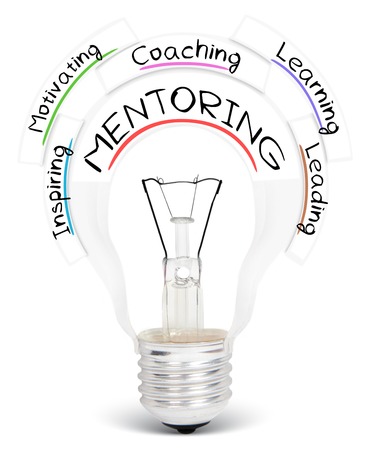Mentoring, Coaching, Sponsorship, and More
 Mentoring is a hot topic these days as organizations look to improve their leadership pipeline, increase diversity among their employee base, close skill gaps, address generational issues, and more. We’ve been talking about mentoring for nearly 20 years now, but we know not everyone has been as focused on it as we have been, and we know there can still be some confusion on what exactly constitutes mentoring.
Mentoring is a hot topic these days as organizations look to improve their leadership pipeline, increase diversity among their employee base, close skill gaps, address generational issues, and more. We’ve been talking about mentoring for nearly 20 years now, but we know not everyone has been as focused on it as we have been, and we know there can still be some confusion on what exactly constitutes mentoring.
People often talk about mentors as their coaches, guides, teachers, advocates, and advisors. They sometimes use these terms interchangeably with “mentor” because it helps give a fuller picture of all the roles a mentor can play for a mentee. At the end of the day, we suggest you don’t get too hung up on the terminology (call it whatever makes the most sense to you), but we do suggest that you focus on the outcomes you hope to gain through mentoring. In fact, Randy Emelo has spent the past two decades sharing how mentoring can occur in different ways: information-based, skill-based, and advocacy-based. You may find that one of these categories or a combination of these categories helps clarify what you want to achieve with mentoring.
Information-based Mentoring
With this type of mentoring, mentees simply need information or understanding about a particular aspect of their work life. Mentors share their experiences and any techniques that they think will meet the mentees’ immediate needs. The mentor performs three basic functions through informational mentoring:
- Resourcing: The mentor provides information based on the mentee’s needs.
- Advising: The mentor becomes a reliable living source of instruction by giving advice.
- Enlightening: The mentor illustrates and brings understanding to the mentee based on the mentee’s needs.
 Skill-based Mentoring
Skill-based Mentoring
With this type of mentoring, mentees need to develop a specific skill. Mentors makes themselves available to handle questions, consult on techniques, point out potential difficulties, set expectations, and report on how they have done it in the past. The mentor performs three basic functions through skill-based mentoring:
- Teaching: The mentor instructs the mentee in a specific skill development area using on-the-job teaching methods.
- Coaching: The mentor instructs the mentee by providing first-hand feedback on current performance.
- Modeling: The mentor becomes a living example for the mentee while they pursue a specific area of skill development.
Advocacy-based Mentoring
With this type of mentoring, mentees need to focus on highly complex interpersonal behaviors. Mentors, although never taking responsibility for mentees’ future successes, become a guiding influence, helping mentees develop the most effective behaviors for various situations. Mentors will assess what abilities mentees possess and help them plan appropriate learning and development activities. Mentors also observe and provide feedback on the mentees’ performance. The mentor performs three basic functions through advocacy-based mentoring:
- Guiding: The mentor navigates the mentee through the personal development process.
- Consulting: The mentor becomes a sounding board and guide for the mentee while they develop a specific behavior or ability.
- Sponsoring: The mentor advocates the mentee’s recognition and promotion.
 While these different levels of mentoring can exist, you don’t need to necessarily label your relationship. It can be enough that you are aware of these variations, what they might look like, and what terms might be interchangeable with mentor or mentoring. You may also find your relationship moving between types of mentoring as it evolves, so being flexible in how you view the different types can make sense.
While these different levels of mentoring can exist, you don’t need to necessarily label your relationship. It can be enough that you are aware of these variations, what they might look like, and what terms might be interchangeable with mentor or mentoring. You may also find your relationship moving between types of mentoring as it evolves, so being flexible in how you view the different types can make sense.
One last thing to keep in mind is that no matter what you call your relationship, you and your mentoring partner should talk about two critical relationship factors: trust and accountability.
- Trust is the confidence both you and your mentoring partner need in each other’s character, ability, strength, maturity, and truthfulness in the relationship. Mentoring is a mutual process. Trust has to be evident to both of you for the relationship to be productive.
- Accountability is the fuel that drives any effective mentoring relationship. It encourages you to plan deliberately, to keep agreements, and to honestly assess your actions and attitudes. This level of honesty can keep your learning relationship focused and serious. Moreover, accountability supports commitment. If a lack of honest commitment exists, then there will be a lower-than-necessary level of personal accountability in the mentoring relationship.
So whether you call it mentoring, coaching, sponsorship, information-gathering, or some other term, ultimately, the labels don’t matter. At the end of the day, the important thing is that you are engaged in the practice, no matter what you call it.
Download our Mentoring Health Assessment eBook to see where your relationship is.








